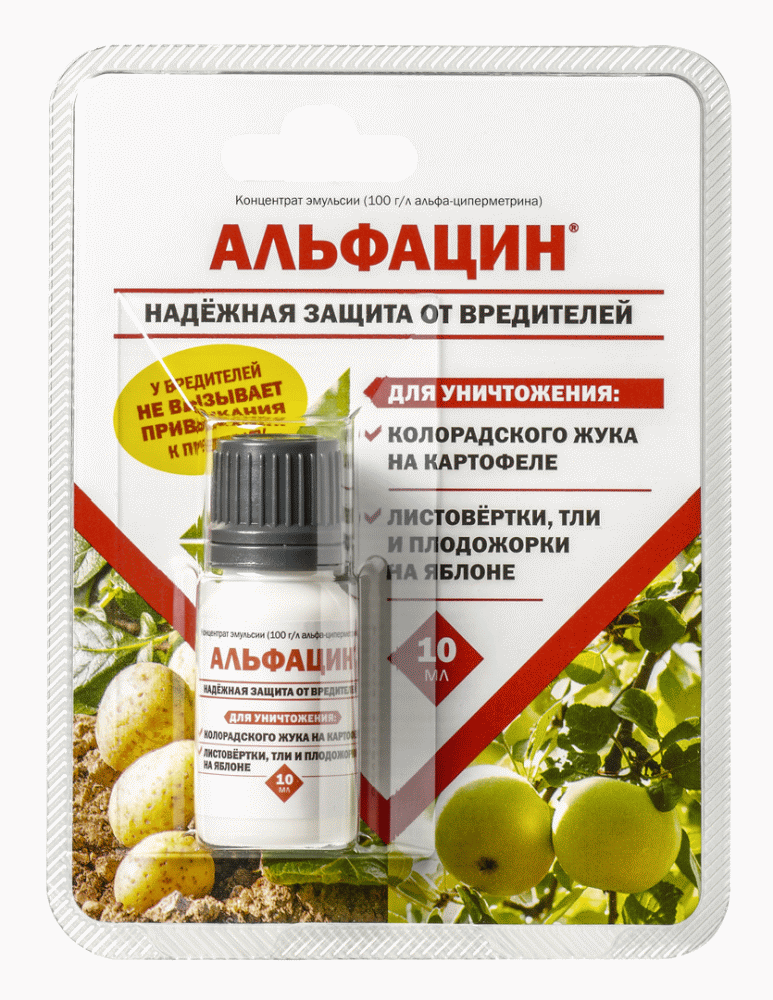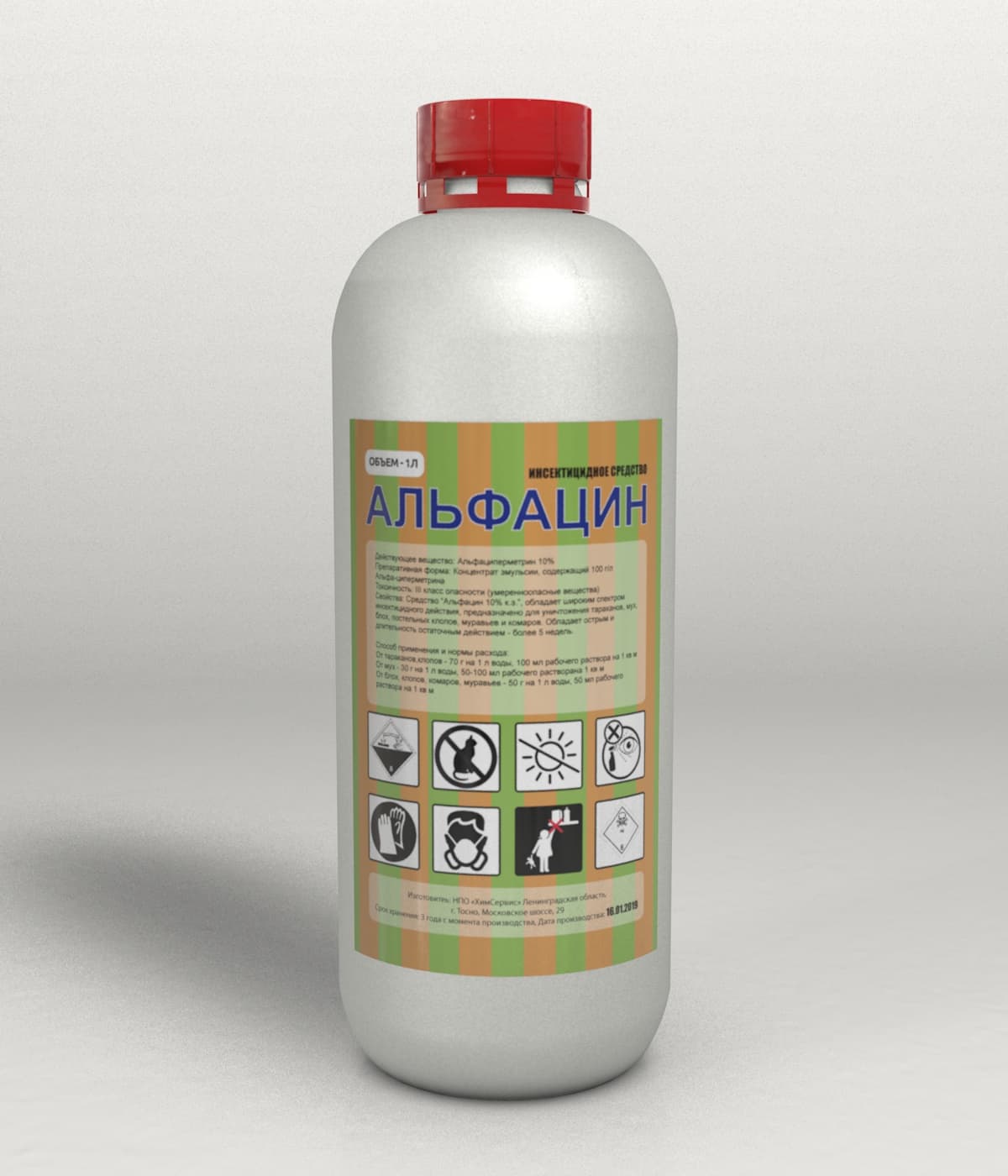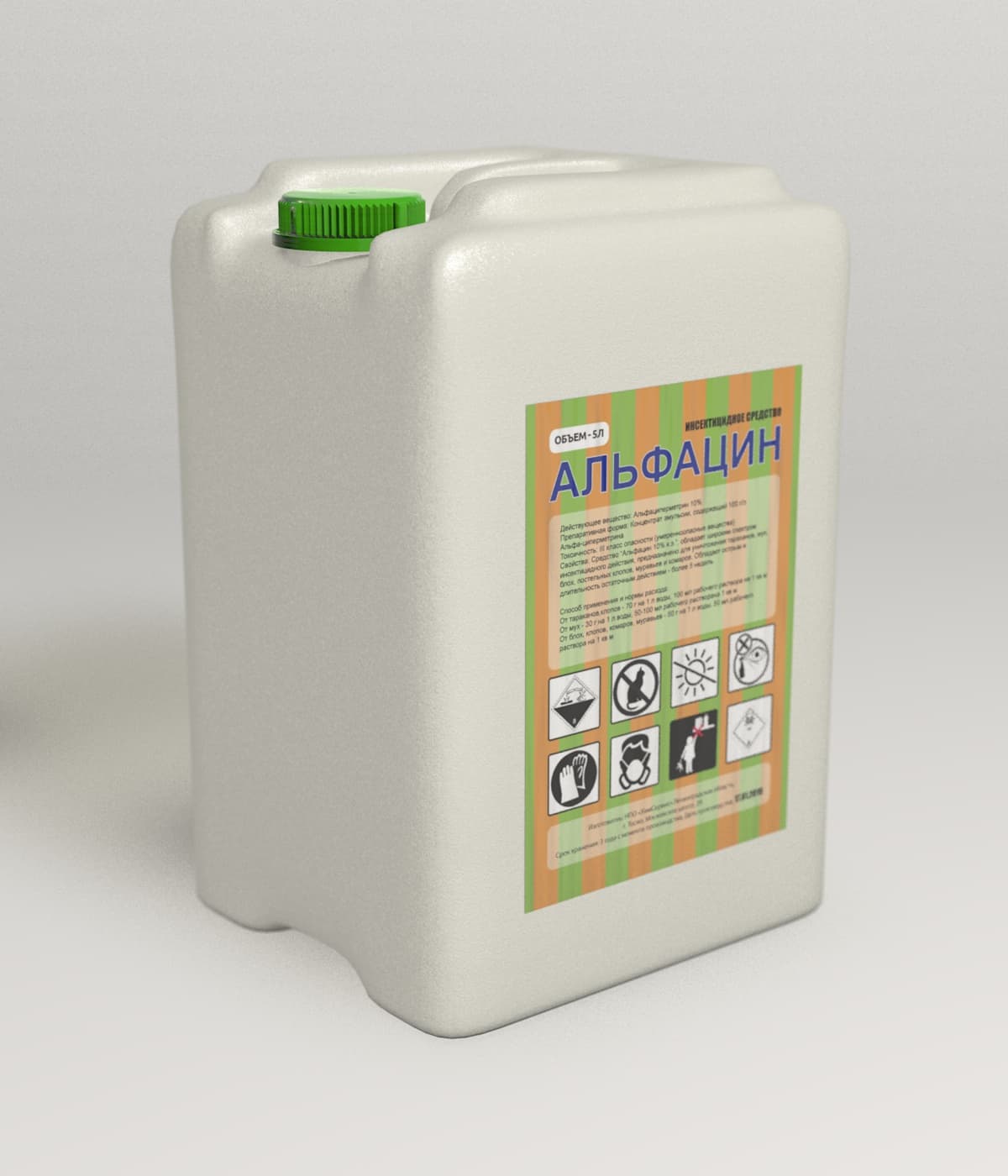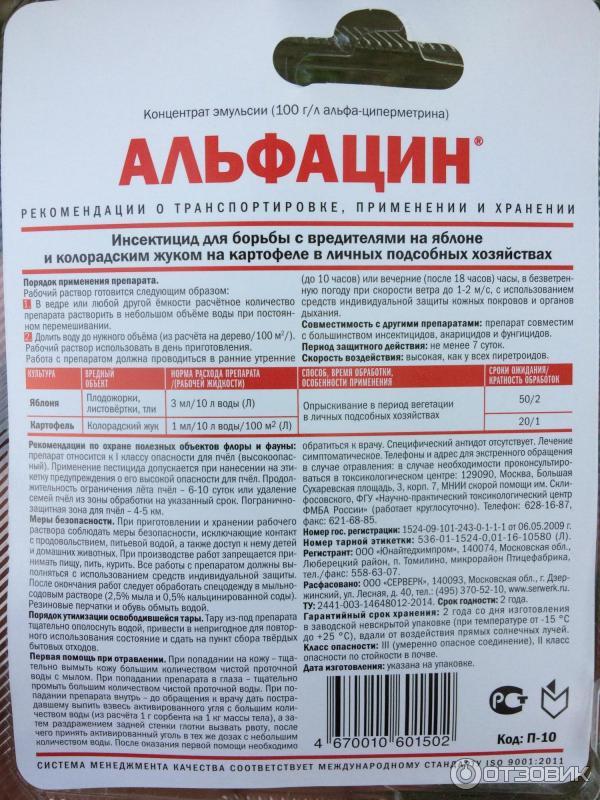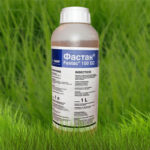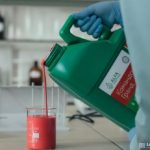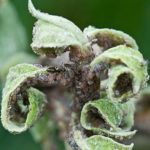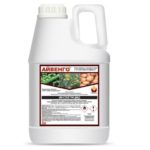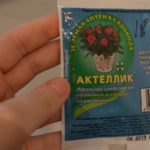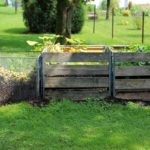Insecticides capable of destroying a wide range of agricultural pests are valued in agriculture and private household plots because of their versatility. Let's consider the capabilities of Alfatsin, its composition and active substance, purpose and mechanism of action, proper use in accordance with the instructions, safety precautions, compatibility with other pesticides, storage conditions and similar drugs.
Active substance and release form
Alfacin is produced by Unitedkhimprom LLC in the form of an emulsion concentrate, with the substance alpha-cypermethrin in the amount of 100 g per 1 liter. The drug has intestinal and contact action. The product is available in 1 liter plastic bottles, 5, 20 and 25 liter canisters. Bottles can be purchased for use in private household plots, canisters can be purchased for processing large fields.
Mechanism of operation and purpose of the drug
Alpha-cypermethrin is effective against insects at all stages of development. Has a long residual effect.
Alfacin is used to treat wheat, barley, rapeseed, mustard, potatoes, fodder and table beets, peas, alfalfa and pastures. Pests against which it works: turtle bug, aphid, leopard, leafhoppers, rapeseed flower beetle, leaf beet aphid, flea beetles, thrips, leafminer fly, pea weevils, codling moth and aphids, Colorado potato beetle, weevils. Pastures are treated against locusts.
How to use insecticide correctly
Application rate of "Alfatsin" (in l per ha):
- wheat, rapeseed, mustard – 0.1-0.15;
- barley, beets, peas – 1;
- potatoes – 0.07-0.1;
- alfalfa for seeds – 0.15-0.2;
- pastures – 0.3.
Alfalfa, according to the instructions for use, is sprayed during budding, other crops - throughout the growing season. The solution consumption is 200-400 l per hectare. Peas are processed 1 time, other crops - 2 times. The waiting period is 20 days, for beets – 45 days. Wild vegetation and pastures are treated against locusts once, during the development of pest larvae.200-400 liters are consumed per hectare.
In private household plots, Alfacin is used to treat apple trees against codling moths, leaf rollers and aphids, and for potatoes against beetles. Application rate: for apple trees – 3 ml per 10 l, for potatoes – 1 ml. Liquid consumption is up to 5 liters per hundred square meters of potato beds and up to 5 liters per tree. Treatment is 2-fold for apple trees and once for potatoes. The waiting period is 50 and 20 days, respectively.
The solution is almost not washed off by rain, the substance does not migrate in the soil and is not detected in groundwater. It is recommended to spray the plants with the drug in the morning or evening when there is no wind.
Safety precautions when working with Alfacin
The insecticide's hazard class for humans is 3, for bees - 1, which means that its use in gardens during flowering is strictly prohibited. The use of this pesticide in the water protection zone of water bodies is also prohibited. When working with the Alfacin solution, preparing it and spraying plants, you need to wear protective clothing that covers the entire body, gloves, goggles and a respirator.
Do not remove them while working, do not drink, do not eat, do not smoke. After finishing spraying, wash your hands and face with soap.
If the insecticidal solution gets on your skin or eyes, rinse them with plenty of water. If ingested, drink water and take activated carbon in a volume of 1 g per 10 kg of body weight. If symptoms of poisoning are severe, you should consult a doctor immediately.
Compatibility
Preparations based on alpha-cypermethrin, including Alfacin, are well compatible with many pesticides. They can be combined in one solution with microfertilizers and growth regulators. But you also need to check compatibility if there are no instructions about this in the instructions.Products are considered compatible if mixing does not change the physical or chemical characteristics of the solution.
Storage conditions and periods
"Alfacin" is stored for 2 years from the date marked as the day of manufacture. Storage conditions: dark, dry warehouse, at moderate temperatures. After the storage time has expired, the insecticide must be replaced with a new one.
Store Alfacin only in its original packaging, with the lid tightly closed. In a warehouse next to the insecticide, you can only keep fertilizers and other agricultural products, but not food, feed and household products. The solution must be used on the day it is prepared. Do not use any leftovers; the solution quickly loses its intensity and will be ineffective.
Analogues of the drug
With alpha-cypermethrin in agriculture you can use the following drugs: “Aivengo”, “Alter”, “Alfa Ring”, “Alfa-Tzipi”, “Accord”, “Altair”, “Alfabel”, “Alfaplan”, “Alfas” , “Alfashance”, “Batrider”, “Bifas”, “Armin”, “Atrix”, “Borey Neo”, “Image Plus”, “Bassoon”, “Fascord”, “Fastak”, “Karifend”, “Piquet” , “Fassance”, “Fatrin”, “Ci-Alpha”, “Tsunami”, “Caesar”, “Zeppelin”, “Espero”.
In private household plots, “Alfatsin” can be replaced with the following products: “Ivango”, “Accord”, “Neofral”, “Pinocid”, “Fatrin”, “Alfashance”, “Zhukoed”, “Ci-Alpha”, “Tsunami”. All products have a similar effect, since they contain the same active substance.
"Alfacin" is used on grains, corn, legumes, cruciferous crops, potatoes, beets and alfalfa, to treat pastures against a number of common pests. The drug is used sparingly and has a low application rate for all treated crops. Treatment, according to the instructions, is single or double, the solution consumption is in the average range.“Alfatsin” is convenient in that it can be used both in the fields and in personal plots.

